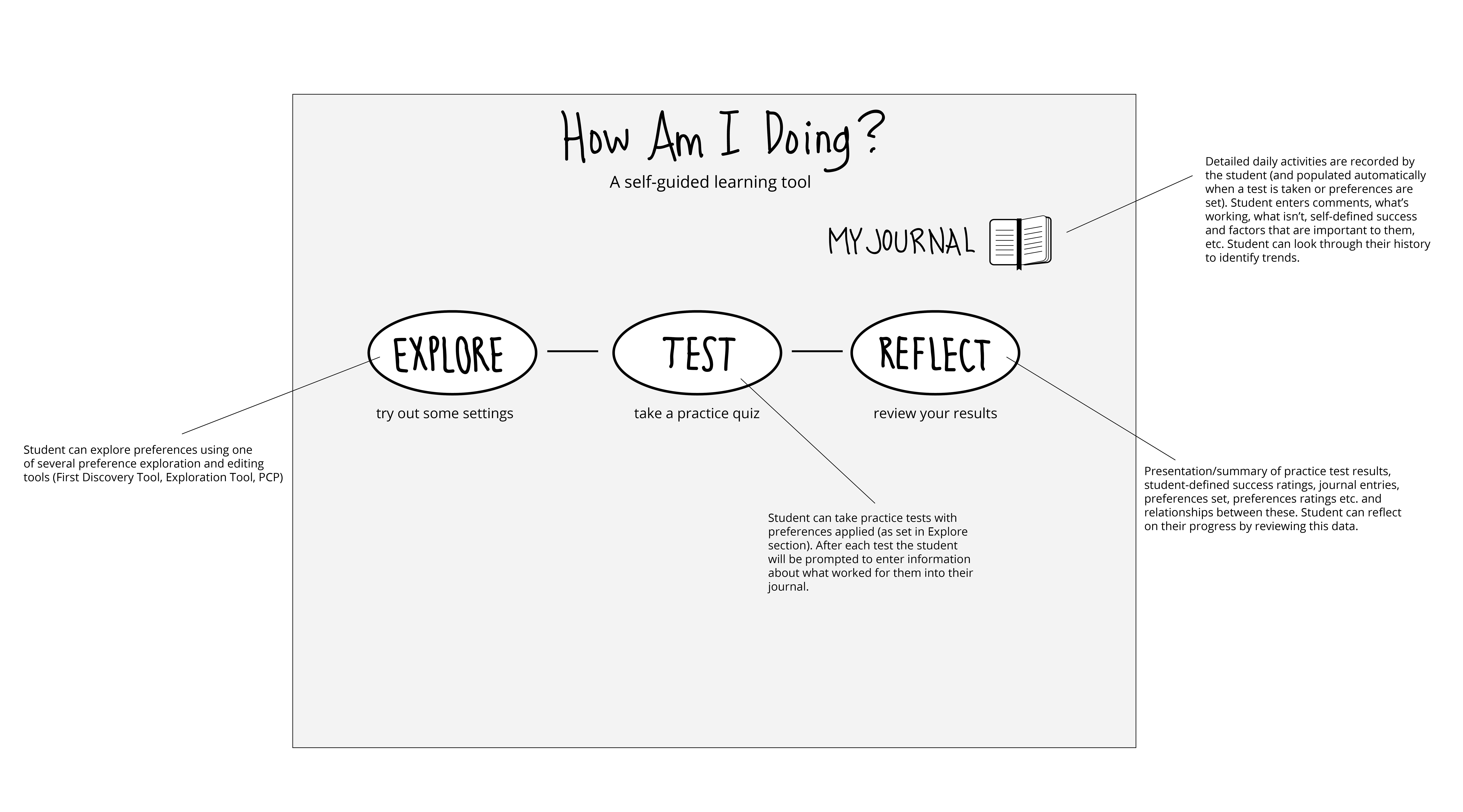Early Explorations - Self-assessment and Learning
Open-Ended: Explore-Test-Reflect
At first a simple learning dashboard was considered where a learner could keep track of their progress in a structured way. Further design discussion led to the idea of an annotated history, or a journal, where a learner could keep track of their activities in a more open-ended way. Here, encouragement and guidance could be given to the learner to enter certain kinds of information (particularly where setting preferences is concerned), but where the learner could also consider and enter information about any parameters or influences that they felt were impacting their progress. This information could then be presented back to the learner in a way that would allow them to pick and choose what is most important to them, in order to allow them to identify relationships, patterns or trends in factors influencing their success, however they define it.
The following image shows a concept for the introductory interface of a self-guided learning tool.
In-Context Journal Widget
Further discussion led to the idea of making the journal a central aspect of the self-assessment process - possibly by embedding a journal widget into the context of a learning resource. In turn the journal could then contain the other elements (i.e. explore/test/reflect interactions and possibly other organizational elements that might be helpful to the learner).
The following shows a potential interaction flow of the journal:
And some potential interactions within the journal notepage:
Future Work
The designs presented here are early sketches that provide a self-assessment context for existing preference editing tools and a basis for further exploration of self-assessment tools and a learner dashboard.
Future work will cover the following additional aspects of the grant:
- Three online self-assessment environments that enable comparative testing, tracking and monitoring of a variety of learning approaches and configurations. The environments address a range of ages and stages in learning
- Testing in a variety of education initiatives with learners with a range of accessibility requirements.
